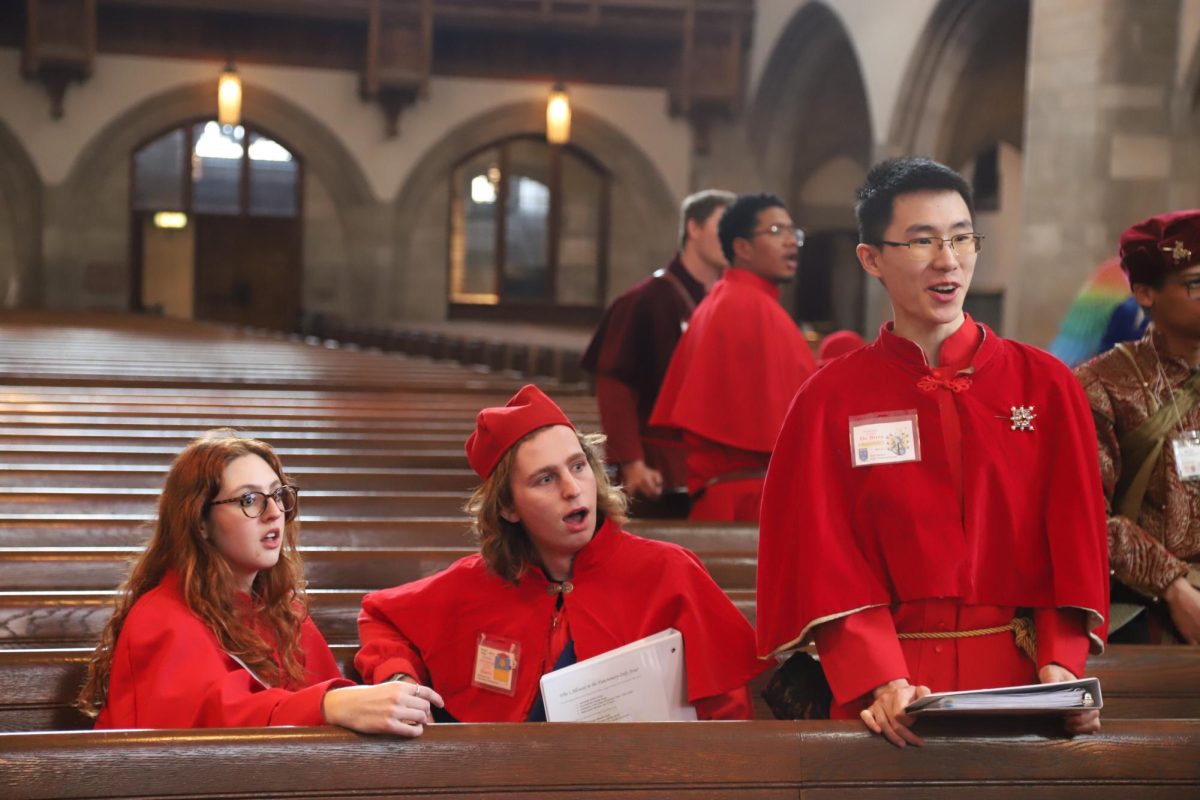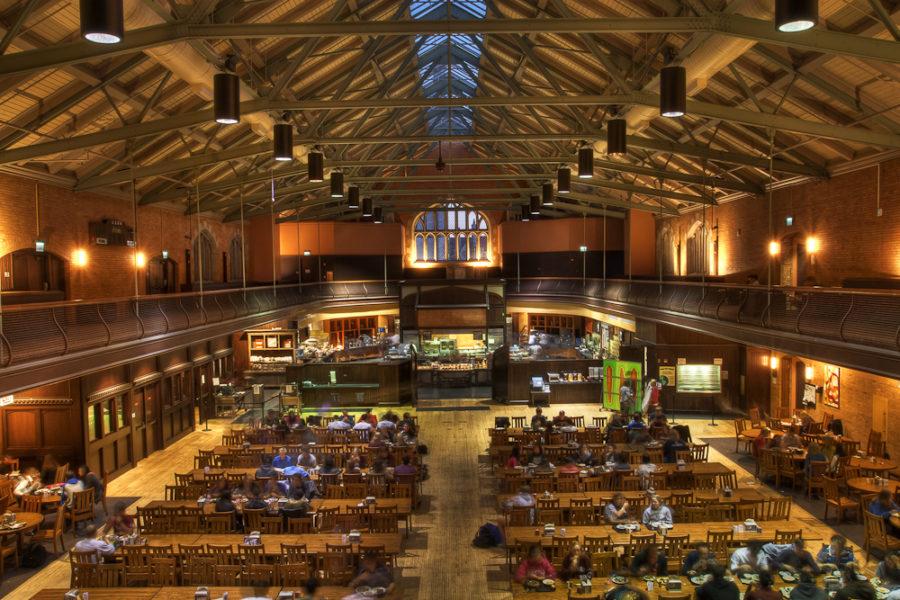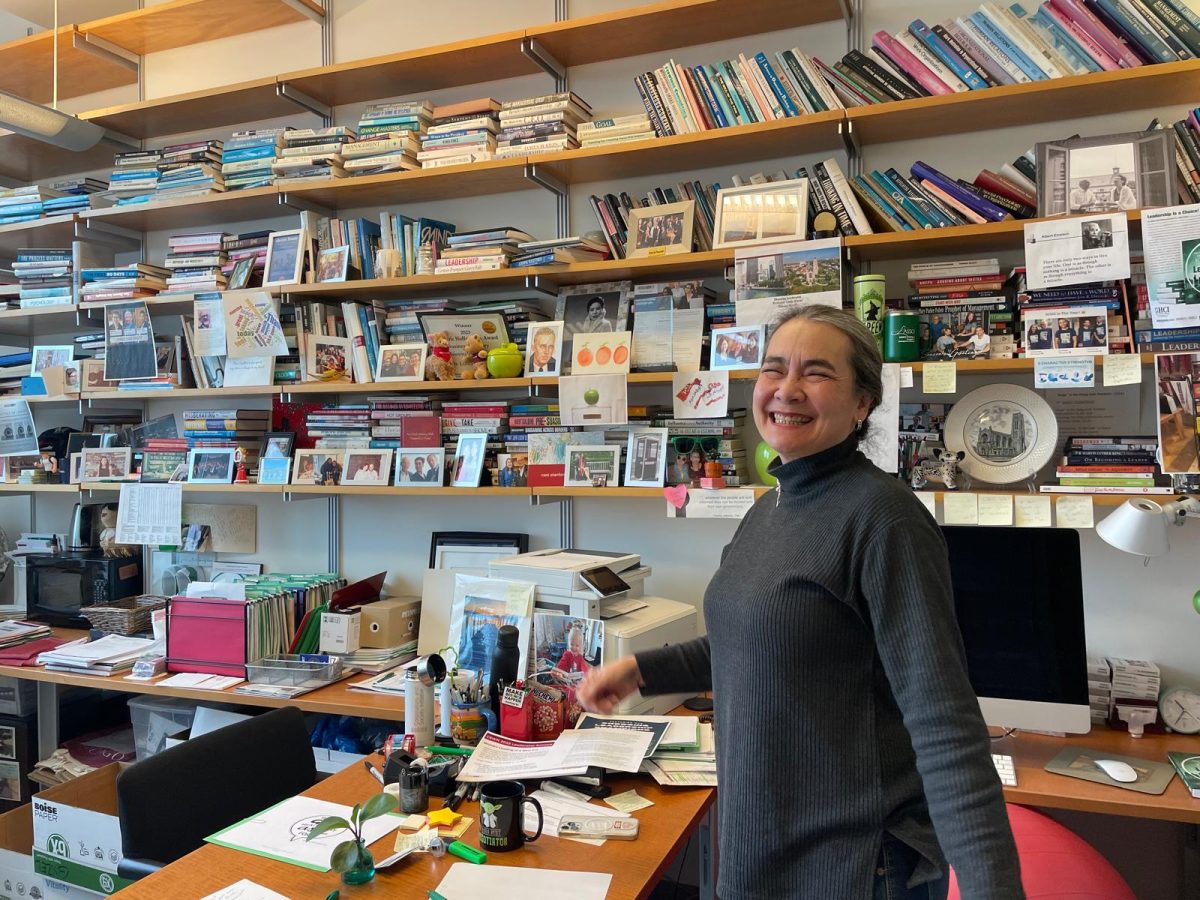The Chicago Humanities Festival did little to settle the university's longest-running debate: the 60-year-old question of whether the latke or the hamentash is the superior food. Daniel Liebenson, executive director of Hillel at the university, hosted an event on the importance of the Latke-Hamantash Debate to the university’s Jewish community at Mandel Hall on Saturday, entertaining a crowd of older attendees who had heard the merits of each food for years.
Ted Cohen, professor of philosophy and moderator of the debate, didn't see the dispute as a laughing matter. He feigned exasperation at the Humanities Festival for belittling the November tradition by implying it is humorous; the festival's theme this year is humor, which Cohen summed up as, “God made us die; laugh.”
Professor James Shapiro started the debate by proving the hamantash’s genetic superiority: according to Schapiro, the dessert item boasts 589 megabase pairs in its genome compared to just 5 in the latke.
Phillip Gossett, a professor in the music department, cited “original” scores of Giuseppe Verdi to prove the composer’s love of the hamantash over the latke. Gossett blamed centuries of censors for changing Verdi's original paeans to the hamantash into love songs and his despair over the latke into sorrowful arias in Rigoletto and La Traviata.
Libenson repeated his support for the Latke through the 2008 presidential campaign. Latke echoes the O in Obama and has the same circular shape as the Nobel Prize, Libenson pointed out. In the end, the latke’s superiority is “taken from that omen Q.E.D.: Yes We Can.”
In his closing comments Cohen compared the ongoing debate to the eternal question, “Will the Messiah ever come?” Summing up the event, Libenson said the debates' conclusions are “interesting failures, but ultimately failures.”








